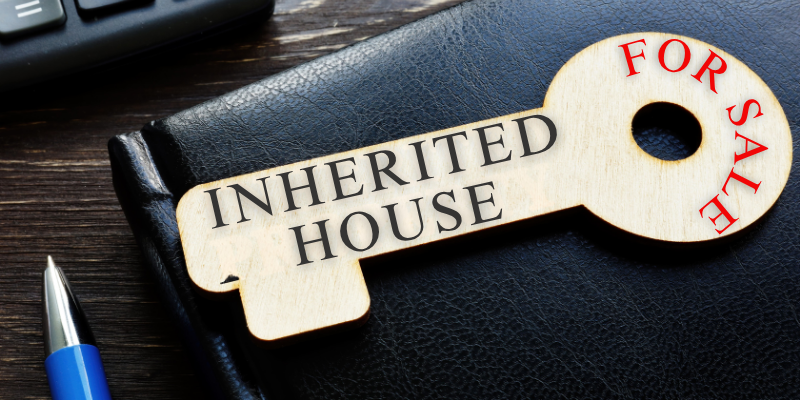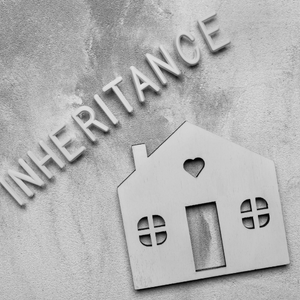
A Connecticut house inheritance can be good and bad. Selling an inherited home requires special rules, whether you’re selling to maximize its value or simplify your life. Our complete guide helps you sell an inherited property in Connecticut, from probate to home valuation. This guide explains legal complexities and helps you get the best real estate deal with local real estate trends and expert advice.
Brief Overview
A Connecticut house inheritance is complicated legally and financially. Managing these complexities includes understanding probate requirements, estate and capital gains taxes, and property upgrades for sale. The strategic advantages of real estate agents versus For Sale by Owner and their impact on the selling process are also discussed. Real estate and financial experts, like Valley Residential Group LLC, can help sellers overcome these obstacles and maximize the property’s value and market opportunities.
Key Highlights
- Most Connecticut estates require probate, affecting inherited home sales.
- Understanding estate taxes, which affect sale proceeds based on property value at inheritance, is crucial.
- After an inheritance, secure the property and obtain the necessary documents for a smooth sale.
- An inherited home’s market appeal can be greatly improved by kitchen and bathroom renovations.
- The choice between a real estate agent and For Sale by Owner depends on expertise, resources, and sale control.
Understanding Inheritance Laws in Connecticut
When selling an inherited house, Connecticut inheritance laws are complicated, so local regulations are crucial. The legal landscape for inherited homes includes estate taxes and property transfer documentation. Understanding the legal aspects is essential, whether you’re familiar with property and real estate laws or new to inheritance. Our guide covers Connecticut’s inheritance laws, preparing you for every step of selling an inherited home.
Key Regulations for Inherited Homes

Connecticut probate is needed to validate the will and appoint an executor to settle debts and transfer ownership. The state’s inheritance laws depend on this process to distribute the estate legally. Understanding probate early helps prepare the home for sale.
Taxes also matter. Connecticut taxes estates and capital gains on homes that sell for more than their inherited value. A probate attorney or financial advisor can help manage these obligations and clarify the property’s value following a professional appraisal.
Sellers need documentation and disclosure beyond probate and taxes. Title insurance, proper deed transfer, and a Residential Property Condition Disclosure Report to inform buyers of known issues are required by Connecticut law. With legal and real estate advice, these steps ensure compliance and a smoother, more profitable sale.
What to Do After Receiving a Connecticut Home
Connecticut home inheritance can be overwhelming, but with the right steps, you can adjust. Know your options and responsibilities as a new property owner. Structure is essential for post-inheritance actions and long-term property decisions. We’ll discuss what to do immediately after inheritance to prepare for legal, financial, and operational issues.
Steps to Take Immediately After Inheritance
Security is the top priority when inheriting a Connecticut home. Change the locks, update insurance, and secure the house during probate. These steps protect you as the new owner and prevent losses.
Get the will, deed, and real estate records next. Most inherited homes go through probate, so knowing your role as executor or beneficiary is crucial. Working with estate attorneys or agents may help clarify responsibilities and ensure a smooth legal transfer.
Review the property’s financial obligations last. Estate taxes, mortgages, and maintenance costs affect whether you keep, rent, or sell. Financial or probate professionals help you plan, while a local real estate agent can advise you on the home’s value and next steps.
Connecticut Inheritance Property Sales Legalities
In Connecticut, selling inherited property requires careful legal handling to ensure compliance and a smooth transaction. Law can be complicated, from probate to estate taxes. Essential tasks include obtaining documents, following disclosure rules, and possibly working with real estate agents to manage the property sale. When selling an inherited home in Connecticut, we’ll cover these procedures and legal requirements to prepare you for potential issues.
Necessary Documents and Procedures
In Connecticut, selling inherited property begins with securing the will and probate, which confirms ownership and provides an executor. Title insurance protects against ownership disputes after the deed is transferred to the inheritor, often with legal assistance. This sets the sale up legally.
Residency Property Condition Disclosure Reports are also required. Any known defects are disclosed to buyers, ensuring transparency and protecting the seller from legal issues. Correct disclosures build trust and streamline transactions.
Before listing, address estate taxes, liens, and debts. Ceasing mortgages and unpaid taxes prevents closing delays if the property exceeds Connecticut estate tax thresholds. Heirs can feel confident about these requirements with legal and financial assistance.
Connecticut Inherited Home Sale Financial Impact
Selling an inherited Connecticut home involves estate tax and capital gains. This can significantly impact the financial implications of selling the property. Connecticut’s property-based estate taxes require understanding their complexities. Similarly, being aware of capital gains taxes, which apply if the property appreciates before selling, is essential. Financial aspects are covered in this section, along with tips for a smoother sale.
Understanding Estate Tax and Capital Gains

Taxes on the sale of an inherited property can significantly influence how Connecticut heirs plan their next steps. Connecticut inheritance home sales often involve estate and capital gains taxes. Depending on the state’s estate tax threshold, estate taxes may apply if the total estate value exceeds the fair market value at inheritance. Consulting a financial advisor is essential to accurately calculate tax obligations and effectively manage the sale proceeds.
When a home sells for more than its stepped-up basis, capital gains taxes apply. Heirs can reduce this issue by timing the sale with tax breaks, deducting improvements or sales costs, or qualifying for primary residence exemptions if they live in the property before selling. Use these steps to maximize profits and minimize taxes.
Working with experienced realtors provides additional guidance. Agents provide accurate valuations, market insights, and renovation suggestions to increase appeal and sale price. With sound financial planning, their expertise helps heirs sell with confidence, manage tax implications, and simplify a complex process into a profitable transaction.
Preparing Your Inherited Home for Sale
You can prepare your Connecticut home for sale using different methods that can affect its appeal and value, whether you’re selling an inherited home or putting it on the market. Repairs and upgrades boost the property’s marketability and attract buyers quickly. Your inherited house can become a desirable Connecticut home if you know what improvements are needed and how to make them.
Essential Repairs and Upgrades
Renovating an inherited home before selling it is common. Connecticut’s regulations and buyers may require repairs to older homes’ roofing, plumbing, and electrical systems. Minor repairs like painting or updating fixtures can improve safety, compliance, and appeal, while a professional home inspection can reveal hidden issues.
Improvements to kitchens’ and bathrooms’ appearance often yield the highest ROI. Better lighting, appliances, and counters can make a big difference. Planting or touching up the exterior creates good curb appeal and first impressions. Eco-friendly features in urban areas or insulation upgrades in rural homes can be recommended by local real estate agents.
Adding storage or smart home technology can also increase buyer interest. Professional staging can highlight the property’s strengths and investment after repairs and upgrades. These steps maximize buyer appeal, induce serious offers, and help sell at the best price.
Effective ways to implement necessary repairs and upgrades:
- Clean carpets, windows, and outdoor spaces to create a welcoming atmosphere.
- Modernize the kitchen and bathrooms with new faucets, cabinet handles, and energy-efficient appliances.
- Maintaining landscaping, painting the front door, and fixing exterior damage boost curb appeal.
- Make sure the home is well-lit, and furniture is arranged to improve room flow with neutral décor to appeal to a wide range of tastes.
- For a blank canvas that helps buyers imagine their own style, paint the walls in neutral colors.
- Fix leaks in the roof or update plumbing and electrical systems found during the inspection.
- Adding attic insulation or replacing windows with energy-efficient ones can boost a home’s value.
- To reassure buyers, update locks and install a modern security system.
These targeted strategies can boost your home’s appeal to buyers.
Options for Selling Inherited Property in Connecticut
Understanding your options when selling an inherited house in Connecticut is essential to making the best decision. Traditional real estate agents and FSBOs are often important choices, but sellers can also explore working with cash home buyers in New Britain, CT, and neighboring cities in Connecticut for a faster, hassle-free sale. This section will explore these selling pathways, focusing on the nuances and potential benefits each method offers. You can better plan a successful estate sale by considering how they fit into Connecticut’s real estate landscape.
Choosing Between Agent, FSBO, or Cash Home Buyer
Connecticut residents must choose between FSBO, real estate agents, and cash home buyers when selling inherited property. Pricing, marketing, and legal expertise make the process easier and more profitable for realtors. Their local market knowledge, negotiation skills, and paperwork management save time and stress.
FSBO attracts sellers who want full control and no commission. Time and effort are needed for pricing, marketing, negotiations, and legal requirements. FSBO success requires thorough research and occasional professional help, such as property valuations or legal advice, to avoid mistakes.
Selling to a Connecticut cash buyer is becoming more popular. This method is fast and easy because you can sell the property without repairs, showings, or negotiations. Families who want to avoid probate, skip expensive upgrades, or sell quickly should use it. Cash offers are usually below market value, but sellers value the simplicity and certainty.
Comparing Selling Methods:
| Selling Method | ✅ Advantages | ❌ Challenges | Best Suited For | Considerations |
|---|---|---|---|---|
| Real Estate Agent | – Expertise in sales – Understanding of market conditions – Network of potential buyers | – Commission fees – Less control over the process | – Individuals with limited time – Those unfamiliar with sales processes | – Finding a trusted agent – Aligning agent incentives – Understanding Connecticut regulations |
| FSBO (For Sale by Owner) | – Potential commission savings – Full control over the sale – Direct negotiation with buyers | – Requires significant time and effort – Need for marketing skills – Limited exposure to buyers | – Experienced sellers – Those with time to dedicate to the sales process | – Preparing property – Accurate pricing – Compliance with local regulations |
| Cash Home Buyer in Connecticut | – Fastest sale option – No repairs or showings – Probate support available | – Typically below-market-value offers | – Sellers needing a quick, hassle-free sale – Properties in need of major repairs | – Evaluate buyer credibility – Compare offers – Balance convenience vs. top price |
This table presents a comparative analysis of selling strategies, helping you tailor your approach to the unique Connecticut market.
Challenges to Selling Inherited Property in Connecticut
Selling an inherited Connecticut home requires strategic planning. Sellers of inherited property must understand complex legal, financial, and emotional issues. Every step requires careful consideration, from probate requirements to real estate market dynamics. This section will discuss common obstacles to selling inherited property and how to overcome them to make the sale run more smoothly. For those seeking quicker options, working with cash home buyers in Connecticut and nearby cities can provide a fast and convenient solution.
Addressing Common Hurdles
Connecticut probate often precedes selling inherited property. The court must approve ownership transfers before a sale, which can take time. The process moves faster and avoids delays with a Connecticut-savvy probate attorney. If the property exceeds the taxable threshold, estate taxes may be a problem, so you need tax advice to plan ahead and manage finances.
Emotions often complicate legal and financial issues. Many inherited homes are sentimental, making selling difficult for families. Family communication and sensitive sales agents can help with these issues. Balance emotions with practical needs to make financial and personal decisions for families.
Additional challenges include property condition and market timing. An extensive property assessment can identify affordable upgrades to sell inherited homes. Understanding Connecticut’s changing real estate market and selling at the right time can also affect the outcome. These obstacles can be overcome with professional help, turning a stressful sale into a rewarding one.
Increasing Connecticut Real Estate Sale Value
Selling an inherited Connecticut home requires strategic planning to maximize its value. Consider effective pricing strategies, hire real estate agents, and navigate the state’s unique real estate landscape to ensure a successful transaction. These key areas can help sellers sell their property for more in the competitive Connecticut market and secure a profitable estate sale.
Effective Pricing Strategies

An inherited home in Connecticut must be priced correctly to attract buyers and ensure a smooth sale. A Comparative Market Analysis (CMA) conducted by an experienced real estate agent can help establish a fair price by reviewing comparable properties and local market trends. We avoid overpricing, which deters buyers, and underpricing, which lowers the estate’s value.
Location, property condition, and buyer expectations should be considered when pricing Connecticut’s diverse real estate market. Listings that highlight architectural details or historical significance make the home stand out. Sellers maximize returns and interest by matching prices to market data and property value.
Flexible strategies are also important. Negotiating and monitoring market responses lets sellers adapt quickly to changing conditions. Realtors help evaluate offers, adjust prices, and keep the property competitive. Pricing a Connecticut inherited home with balance and flexibility can speed up sales and boost profits.
Taxes on Connecticut Real Estate Sales
Selling an inherited Connecticut house involves estate and capital gains taxes. To navigate these taxes, you must understand the legal and financial implications of a sale. Preparing for taxation issues helps with real estate transactions. Tax details can greatly impact estate property finances. This section covers estate and capital gains tax basics to help you manage them professionally.
Handling Estate and Capital Gains Taxes
Connecticut estate and capital gains taxes apply to selling an inherited home. State estate taxes apply to property over a certain value upon inheritance. To determine if these taxes apply, a professional valuation of the entire estate is needed. Exceeding the threshold means part of the sale proceeds must go to taxes.
When a home sells for more than its inheritance value, capital gains taxes apply. Taxable difference is the stepped-up basis. Homeowners can reduce this burden by living in the inherited property for two years, deducting improvements and selling costs, or timing the sale to take advantage of tax breaks.
Financial advisors and experienced real estate agents help maximize sale proceeds and create a tax strategy. Agents offer market insight and optimal timing, while advisors suggest delaying the sale or spreading payments. With proper planning, you can reduce taxes, simplify the process, and profit from selling an inherited home.
Inheriting a house and need to sell? Whether you want to sell quickly, avoid repairs, or prefer a stress-free process, Valley Residential Group LLC can help. We provide fair cash offers, handle all the paperwork, and make selling simple. Have questions or ready to get started? Contact us at (860) 589-4663 for a no-obligation cash offer today.
FAQs
First steps after inheriting a Connecticut house?
Inherit a house, change the locks, and get insurance. Collect wills and deeds to prove ownership and responsibilities.
What makes Connecticut probate laws important when selling an inherited home?
Probate laws in Connecticut require validation of the will and settlement of estate debts before selling. Proper property transfer requires this legal process.
How do Connecticut taxes affect selling inherited property?
Connecticut may impose estate taxes on estates over the threshold. If the property sells for more than its inheritance value, capital gains tax may apply.
FSBO vs. real estate agent: what are the advantages?
Inexperienced buyers may benefit from real estate agents’ legal and negotiation skills. FSBO saves commissions but requires more knowledge and involvement.
How can upgrades and repairs affect the sale of an inherited home?
The right repairs and upgrades can boost a home’s value. To attract buyers and increase the sale price, focus on kitchens and bathrooms.
Helpful Connecticut Blog Articles
- Cost To Replumb Your Connecticut Home
- Sell Your Connecticut Home With A Reverse Mortgage
- Best Time to Sell a House in Connecticut
- Selling a Water-Damaged House in Connecticut
- Selling a House With a Tax Lien in Connecticut
- Attorney Fees for House Closings in Connecticut
- Selling A House With Foundation Issues In Connecticut
- Selling A Fire-Damaged House In Connecticut
- How To Successfully Sell A House With A Lien In Connecticut
- Understanding The Taxes On Selling Your Home In Connecticut
- Cost to List on MLS in Connecticut
- How to Claim Ownership of Abandoned Property in Connecticut
- How to Sell an Inherited House in Connecticut
- How Long Can Seller Stay in House After Closing in Connecticut
- Can the Seller Back Out of a Real Estate Contract in Connecticut?
- Does a Seller Pay Closing Costs in Connecticut?

